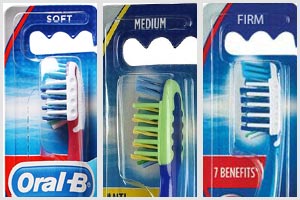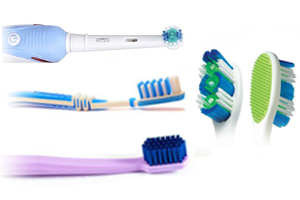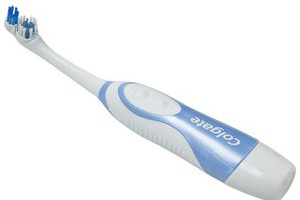Brushing our teeth is highly important for many reasons. It is of course crucial if we want to ensure that our teeth look good and healthy both in the short term and in the long term (it helps us to avoid rotting gnashers as well as helping us to avoid going to work with seeds between our front teeth), but it is also important to help us improve our overall health by ridding our mouth of bacteria and reducing the amount pressure on our poor over-worked immune systems. And while a bad workman might blame his tools, it is certainly important when brushing to ensure that you have both the best technique and the best brushes to begin with. But how do you know which one to choose? Here we will look at how to decide.
Firm or Soft
 When it comes to picking toothbrushes, there are several dichotomies to consider. The first of these is the firmness of the brush – and whether we are better to use firm or soft toothbrushes. If you’ve tried a few products in your time then you will know that brushes can vary greatly and some are much firmer than others.
When it comes to picking toothbrushes, there are several dichotomies to consider. The first of these is the firmness of the brush – and whether we are better to use firm or soft toothbrushes. If you’ve tried a few products in your time then you will know that brushes can vary greatly and some are much firmer than others.
The problem is that many of these firm toothbrushes are a little too firm, and you will find that in some cases they can actually cause damage to the gums cutting them open and resulting in possible infection. If you find that your teeth are bleeding often when you finish brushing, then this is a sure sign that you are using brushes that are too hard.
As such, for most people it is worth using softer toothbrushes to avoid this problem – but bear in mind that it is not the toothbrush alone that is responsible for any damage you may be causing; it’s also down to how hard you are pressing on your gums and teeth. It’s also not good for you to press too hard on your teeth for the teeth themselves – the reason being that it can actually damage the enamel on the outside of your teeth and thereby cause your teeth to become more susceptible to being easily damaged.
Shape
 However while you don’t want to make your gums bleed or scrape off your enamel, you do want to make sure to remove as much plaque and staining as possible and for that there will need to be some pressure on your teeth. Largely this will be dictated by the shape of the brush, and whether or not it is able to reach all of the contours of the tooth. In this respect a flexible and agile brush will be more useful than one that is just a single piece of solid plastic. At the same time this allows you to press a little harder on the teeth as the brush will bend to compensate when you are pushing too much. To get everywhere make sure that you floss as well.
However while you don’t want to make your gums bleed or scrape off your enamel, you do want to make sure to remove as much plaque and staining as possible and for that there will need to be some pressure on your teeth. Largely this will be dictated by the shape of the brush, and whether or not it is able to reach all of the contours of the tooth. In this respect a flexible and agile brush will be more useful than one that is just a single piece of solid plastic. At the same time this allows you to press a little harder on the teeth as the brush will bend to compensate when you are pushing too much. To get everywhere make sure that you floss as well.
Electric
 If you get an electric toothbrush then this is not just a gimmick. Actually most dentists recommend using an electric toothbrush as the motor ensures that you effectively brush your teeth many more times in the same duration without placing too much pressure on the tooth. The best toothbrush then will be soft, flexible and electric.
If you get an electric toothbrush then this is not just a gimmick. Actually most dentists recommend using an electric toothbrush as the motor ensures that you effectively brush your teeth many more times in the same duration without placing too much pressure on the tooth. The best toothbrush then will be soft, flexible and electric.
Extra Features
Finally there are extra features to some toothbrushes that can sometimes help. For instance having a serrated back in order to help you clean your tongue off is often useful. Some toothbrushes also come with covers that let you protect the ends when they are not in use and these are useful as well helping you to get less bacteria on your brush meaning ultimately less bacteria in your mouth.




Good information!